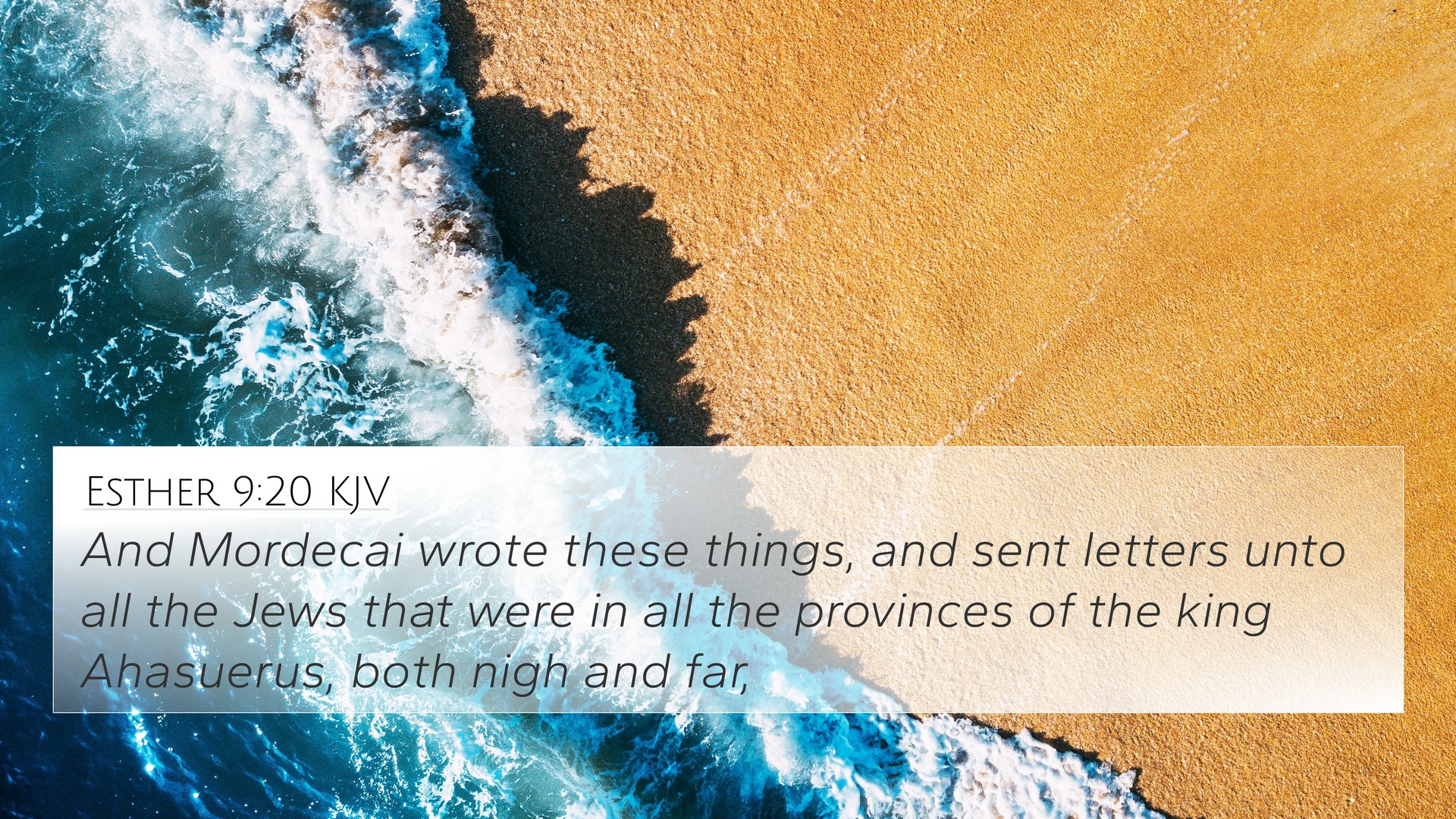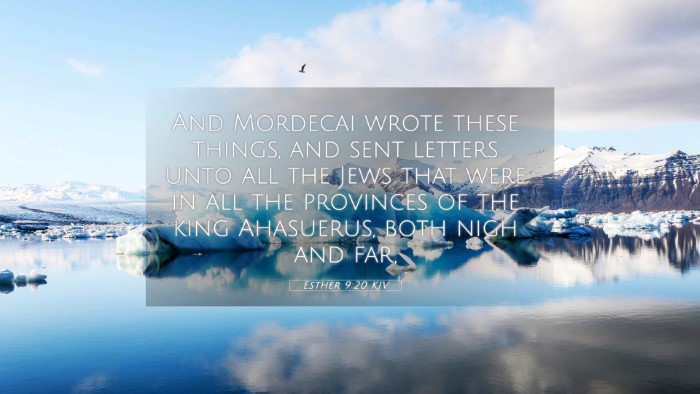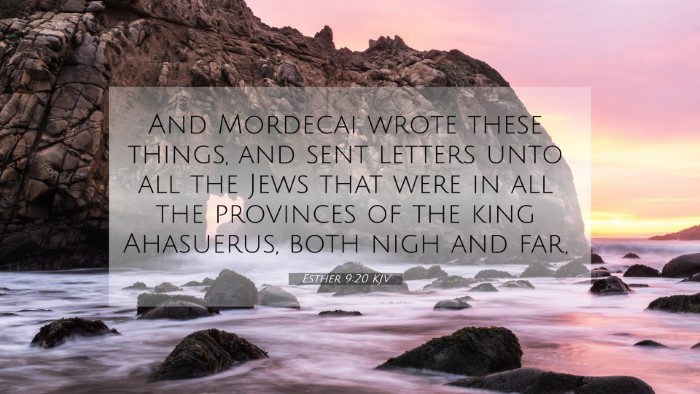This section features a detailed cross-reference designed to enrich your understanding of the Scriptures.
Below, you will find carefully selected verses that echo the themes and teachings related to Esther 9:20 KJV. Click on any image to explore detailed analyses of related Bible verses and uncover deeper theological insights.
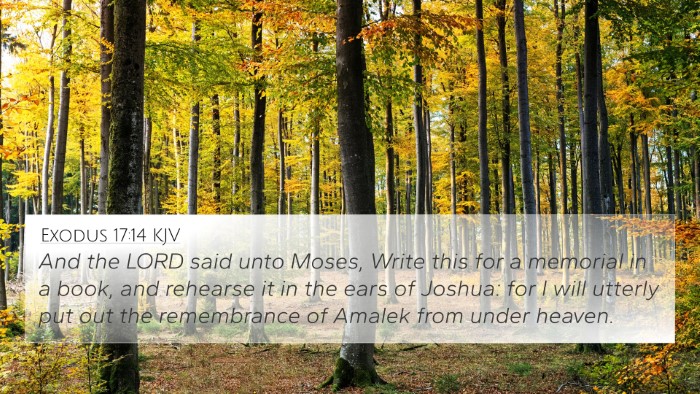 Exodus 17:14 (KJV) »
Exodus 17:14 (KJV) »
And the LORD said unto Moses, Write this for a memorial in a book, and rehearse it in the ears of Joshua: for I will utterly put out the remembrance of Amalek from under heaven.
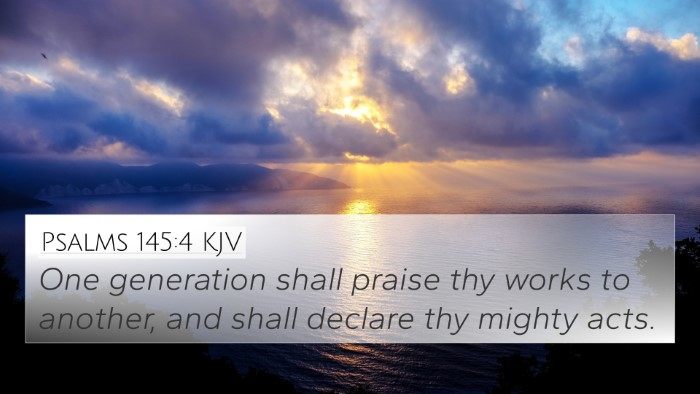 Psalms 145:4 (KJV) »
Psalms 145:4 (KJV) »
One generation shall praise thy works to another, and shall declare thy mighty acts.
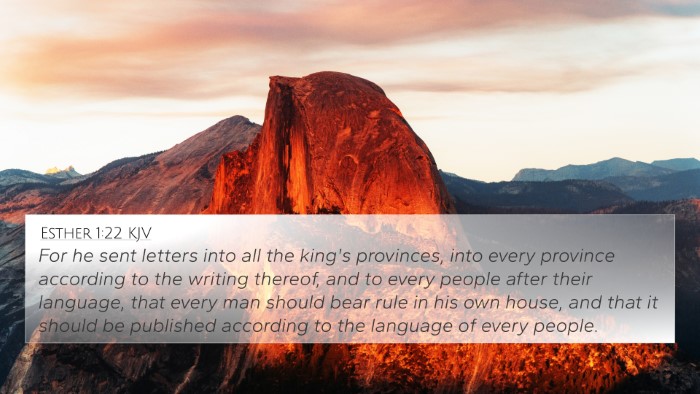 Esther 1:22 (KJV) »
Esther 1:22 (KJV) »
For he sent letters into all the king's provinces, into every province according to the writing thereof, and to every people after their language, that every man should bear rule in his own house, and that it should be published according to the language of every people.
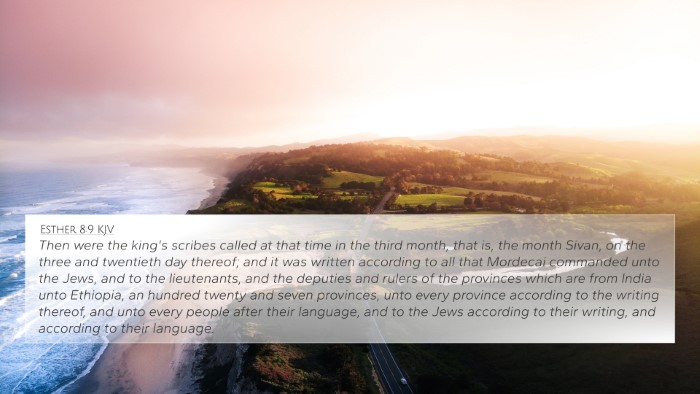 Esther 8:9 (KJV) »
Esther 8:9 (KJV) »
Then were the king's scribes called at that time in the third month, that is, the month Sivan, on the three and twentieth day thereof; and it was written according to all that Mordecai commanded unto the Jews, and to the lieutenants, and the deputies and rulers of the provinces which are from India unto Ethiopia, an hundred twenty and seven provinces, unto every province according to the writing thereof, and unto every people after their language, and to the Jews according to their writing, and according to their language.
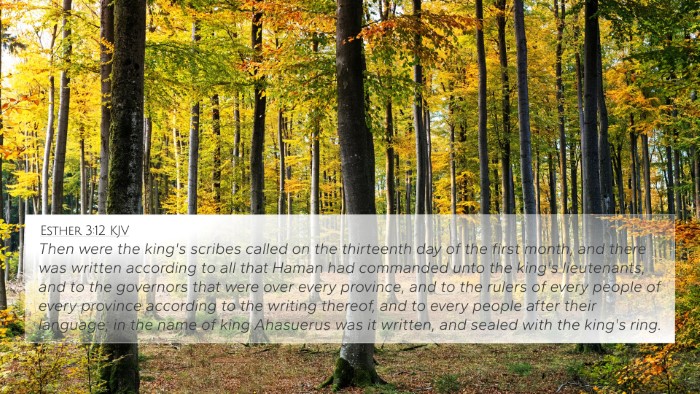 Esther 3:12 (KJV) »
Esther 3:12 (KJV) »
Then were the king's scribes called on the thirteenth day of the first month, and there was written according to all that Haman had commanded unto the king's lieutenants, and to the governors that were over every province, and to the rulers of every people of every province according to the writing thereof, and to every people after their language; in the name of king Ahasuerus was it written, and sealed with the king's ring.
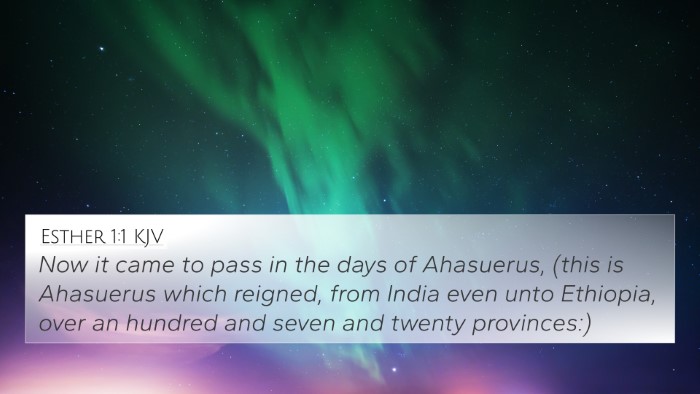 Esther 1:1 (KJV) »
Esther 1:1 (KJV) »
Now it came to pass in the days of Ahasuerus, (this is Ahasuerus which reigned, from India even unto Ethiopia, over an hundred and seven and twenty provinces:)
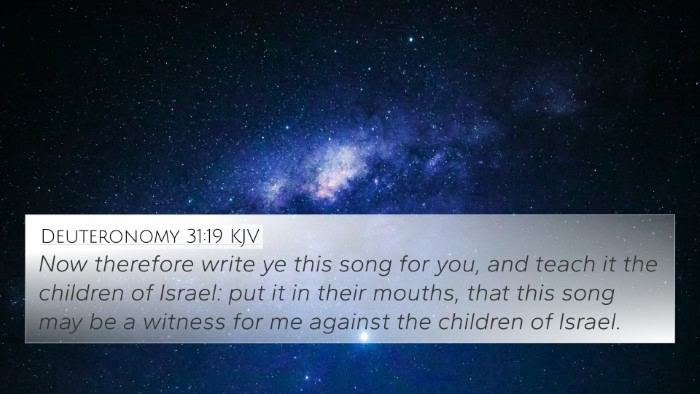 Deuteronomy 31:19 (KJV) »
Deuteronomy 31:19 (KJV) »
Now therefore write ye this song for you, and teach it the children of Israel: put it in their mouths, that this song may be a witness for me against the children of Israel.
 2 Corinthians 1:10 (KJV) »
2 Corinthians 1:10 (KJV) »
Who delivered us from so great a death, and doth deliver: in whom we trust that he will yet deliver us;
